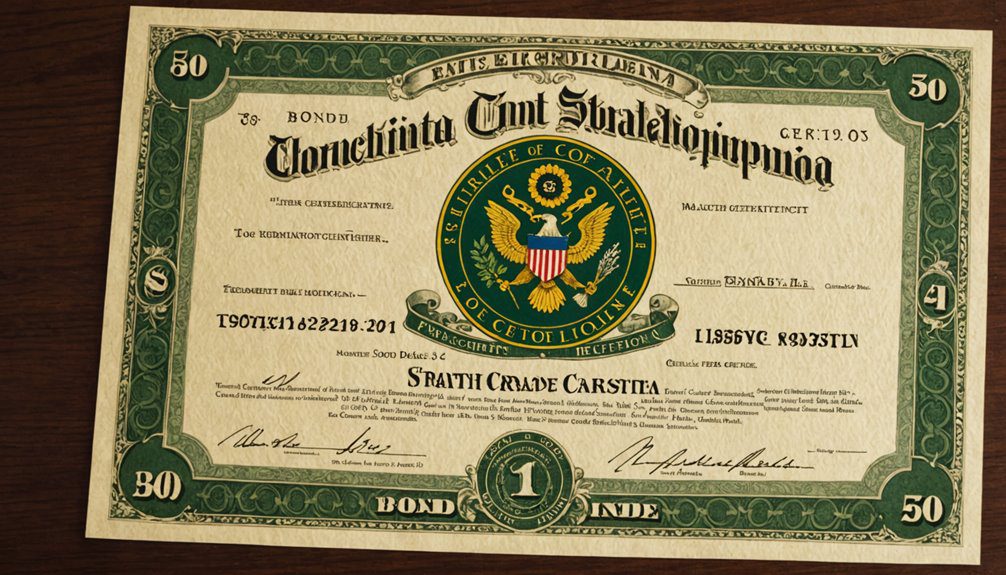If you're considering a career as a mechanical contractor in South Carolina, understanding the Group 4 license and its associated $80,000 bond is essential. This bond not only protects your clients but also positions you as a credible professional in a competitive market. You might wonder about the specific eligibility requirements and the application process, which can seem daunting at first. However, getting the right information can make all the difference. What challenges might you face along the way, and how can you overcome them?
Overview of Group 4 License
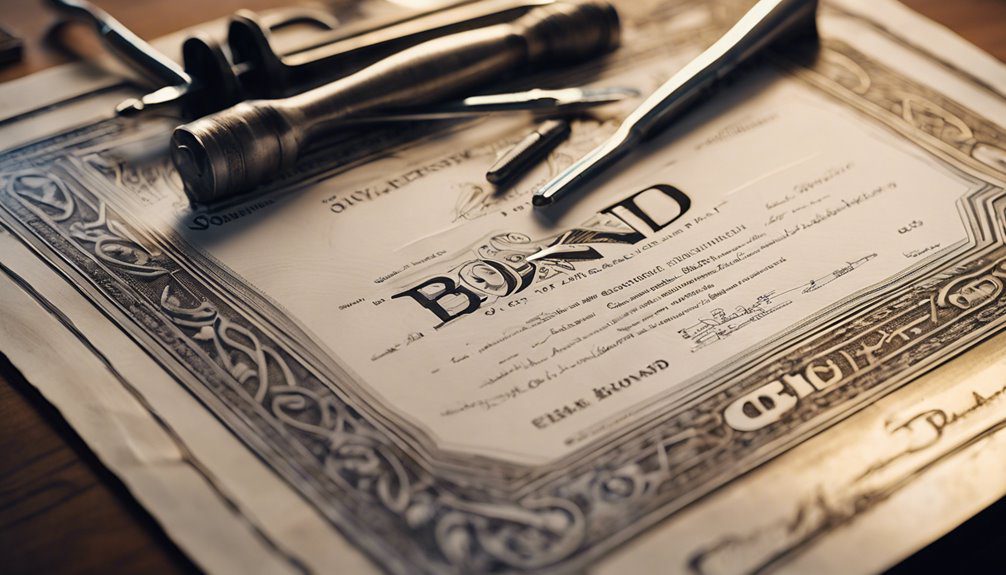
When you're considering entering the mechanical contracting field in South Carolina, it's essential to understand the Group 4 License. This license is specifically designed for contractors who deal with mechanical systems, including heating, ventilation, air conditioning (HVAC), and plumbing.
To qualify, you'll need to meet certain experience and education requirements, demonstrating your expertise in these crucial areas.
Obtaining a Group 4 License allows you to perform a wide range of mechanical work, ensuring you're legally recognized as a qualified contractor. This license not only enhances your credibility but also opens doors to new job opportunities and contracts.
You'll be able to bid on larger projects and work with various clients, from residential homeowners to commercial businesses.
To apply for this license, you'll need to pass an exam that covers relevant codes, laws, and best practices in the industry. This ensures that you're well-prepared to handle the responsibilities that come with being a licensed contractor.
Importance of the ,000 Bond
An $80,000 bond is crucial for mechanical contractors in South Carolina, as it provides financial protection for clients and ensures compliance with state regulations. When you secure this bond, you're demonstrating your commitment to ethical business practices and adherence to local laws.
This bond acts as a safety net, meaning that if you fail to fulfill your contractual obligations or violate any regulations, your clients can claim compensation, up to the bond amount.
Having an $80,000 bond not only protects your clients but also enhances your credibility. Clients are more likely to hire you if they know you're bonded, as it reflects your professionalism and reliability.
Plus, it can give you a competitive edge over contractors who aren't bonded.
Additionally, the bond helps foster a sense of trust in your business. It shows that you're serious about your work and willing to take financial responsibility.
In a field where reputation is key, being bonded can make a significant difference in attracting new clients.
Ultimately, this bond isn't just a requirement; it's a vital asset that can lead to a successful and sustainable contracting business in South Carolina. Furthermore, it is essential to understand the role of surety bonds in protecting against financial loss due to non-compliance.
Eligibility Requirements
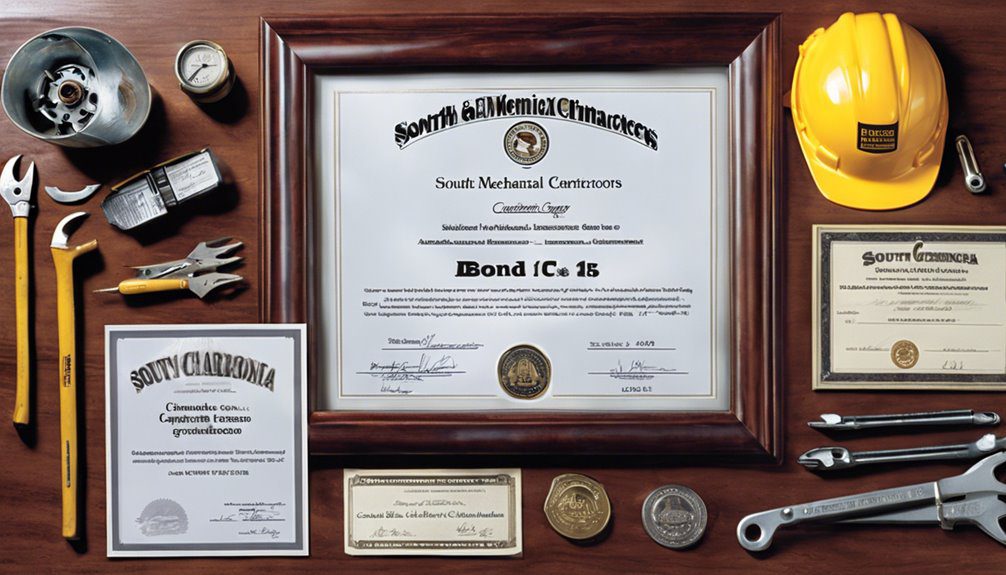
Securing an $80,000 bond is just one step in becoming a licensed mechanical contractor in South Carolina. To qualify for this bond, you need to meet specific eligibility requirements.
First, you'll need to prove that you have the necessary experience and knowledge in mechanical contracting. This typically means having a minimum of four years of verifiable work experience in the field.
You'll also need to provide proof of your financial stability. This usually involves submitting financial statements or other documents that show you can cover the bond amount and operate your business responsibly. A clean credit history can also play a critical role in your eligibility, as it reflects your reliability as a contractor.
Furthermore, you'll need to pass a licensing exam that tests your understanding of state laws, codes, and best practices in mechanical contracting.
Lastly, make sure you're familiar with any local regulations that may affect your eligibility. Understanding bond types and regulations will ensure you navigate the licensing process effectively.
Application Process Steps
To apply for your South Carolina mechanical contractor license, you'll need to follow a series of straightforward steps. First, gather all necessary documentation, including proof of experience and education, as well as financial statements.
Next, complete the application form, which you can find on the South Carolina Department of Labor, Licensing, and Regulation (LLR) website.
After filling out the application, submit it along with the required fees. Be sure to double-check that you've included everything needed, as incomplete applications can delay the process.
Once your application is accepted, you'll receive instructions on scheduling your exam. Prepare for the exam by studying relevant codes, regulations, and industry standards.
When you pass the exam, you'll need to obtain a surety bond, which is essential for your license. This bond serves to protect against non-compliance and ensures that you meet all obligations required by the state. After securing your bond, submit all documentation, including the bond, to the LLR.
Finally, wait for approval. Once your application is processed and approved, you'll receive your mechanical contractor license, allowing you to legally operate in South Carolina.
Remember to keep your license and bond current to maintain compliance with state regulations.
Bonding Companies and Options
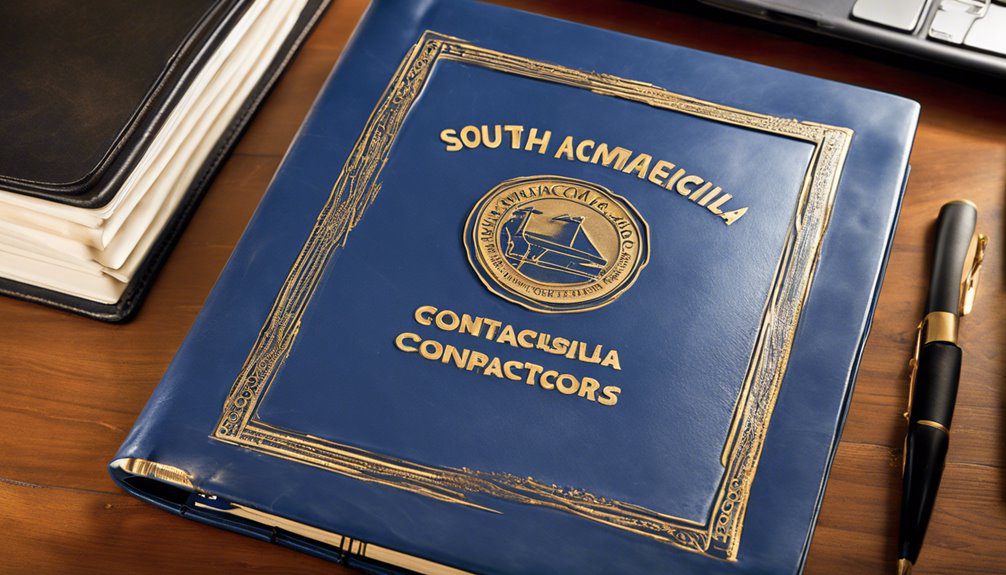
When it comes to obtaining your South Carolina mechanical contractor license, choosing the right bonding company is crucial.
You'll want to partner with a reliable and reputable bonding company that understands the specific requirements for your license type. Start by researching companies that specialize in contractor bonds and have a good track record in South Carolina.
Consider reaching out to multiple bonding companies to compare their services, customer support, and responsiveness. Ask for referrals or read reviews from other contractors to gauge their experiences.
It's important to find a company that not only offers competitive rates but also provides excellent customer service throughout the bonding process.
You'll also want to explore different options, such as the type of bond you need and any additional coverage that may be beneficial. Surety bonds can provide financial assurance for contractors and businesses.
Some bonding companies might offer package deals or discounts for multiple bonds, so be sure to ask about any potential savings.
Costs Associated With the Bond
Understanding the costs associated with your South Carolina mechanical contractor license bond is essential for budgeting effectively. The bond amount for Group 4 is set at $80,000, but that's not the full picture.
You won't pay the full bond amount upfront—instead, you'll pay a premium, usually a percentage of the total bond amount. This premium typically ranges from 1% to 10%, depending on factors like your credit score, experience, and the bonding company's underwriting criteria.
For instance, if your premium is set at 2%, you'd pay $1,600 for the bond. Additionally, consider potential fees that may arise during the bonding process, such as application fees or document processing fees. These can vary by bonding company.
It's also wise to factor in any costs related to maintaining your bond, like renewal fees, which can occur annually. By understanding these costs upfront, you can better prepare your finances and avoid unexpected expenses.
Taking the time to shop around for competitive rates from different bonding companies can help you save money while ensuring you meet the legal requirements for your mechanical contractor license. Moreover, understanding the financial implications of non-compliance can further motivate you to keep your bond active and in good standing.
Maintenance and Renewal Guidelines
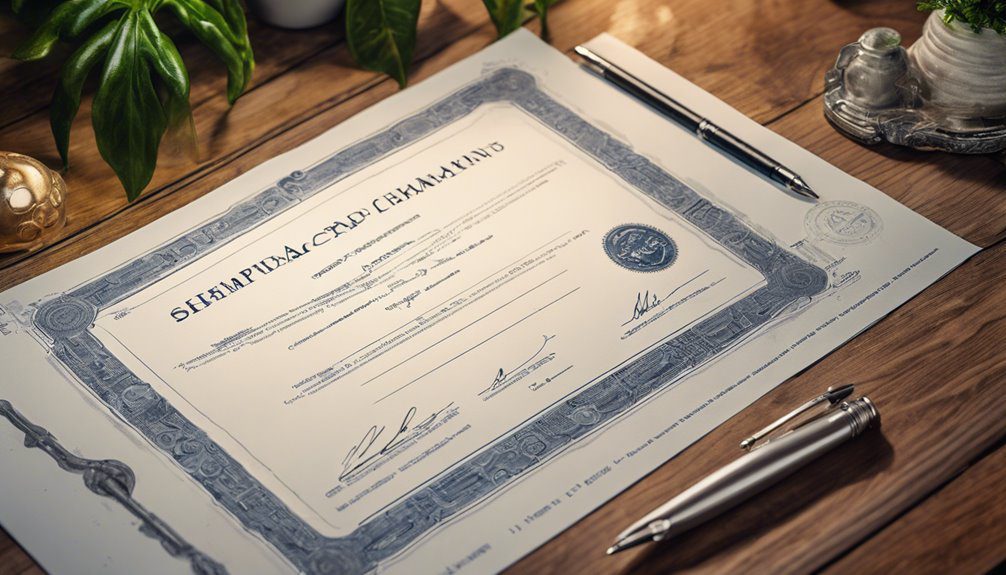
Maintaining your South Carolina mechanical contractor license bond is crucial for staying compliant and avoiding any lapses in coverage.
To ensure your bond remains valid, you'll need to keep an eye on its expiration date and renew it before it lapses. Most bonds have a term of one year, so set reminders to begin the renewal process at least a month in advance.
When renewing, review any changes in your business operations that might affect your bond amount. If you've grown your business or taken on larger projects, you may need to adjust your coverage.
Additionally, be prepared to submit any required documentation or updated financial information to your surety company.
It's also essential to maintain a good relationship with your surety provider. If you experience any claims or financial difficulties, communicate with them early to discuss your options. Furthermore, understanding the importance of surety bonds can help you appreciate their role in protecting your business interests.
Common Challenges and Solutions
Navigating the landscape of mechanical contractor licensing in South Carolina can present several challenges, but recognizing these hurdles early can help you find effective solutions.
One common issue is understanding the specific requirements for obtaining and renewing your license. You might find it overwhelming to sift through regulations and paperwork. To tackle this, consider consulting with a licensing expert or joining a local contractor association for guidance.
Another challenge is maintaining the $80,000 bond required for Group 4 licensing. If you face financial difficulties, securing this bond might feel impossible. Start by shopping around for different surety bond providers, as rates can vary significantly. Establishing a good credit score can also lead to lower premiums.
Staying updated on changes in local regulations can be tricky, too. To combat this, subscribe to industry newsletters or attend workshops regularly. Networking with other contractors can also provide valuable insights.
Lastly, managing project timelines while ensuring compliance can create stress. Implementing project management software can help you keep track of deadlines and stay organized. Additionally, understanding surety bonds can enhance your ability to navigate these challenges effectively.
Conclusion
In summary, securing the South Carolina Mechanical Contractors License Group 4 bond is essential for establishing your credibility and ensuring compliance in the industry. By understanding the requirements and navigating the application process, you can enhance your reputation and gain a competitive edge. Remember to maintain good credit and stay informed about renewal guidelines to keep your bond active. With the right preparation, you'll be well-equipped to succeed in your contracting endeavors.

